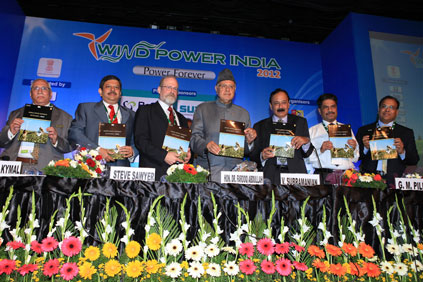Speaking at the Wind Power India 2012 conference in December 2012, renewable energy minister Farooq Abdullah suggested that the industry should apply for money from the National Clean Energy Fund - introduced in 2010 to fund projects and research into the clean technology sector.
The money could be used as a stop-gap until a longer-term solution is found, the minister suggested. The problem is worst in the state of Tamil Nadu, India's wind powerhouse with almost 7GW installed, where the utility has not paid wind farm operators for more than 14 months.
Generators in other states have also suffered from late payments, but less extreme at around two or three months.
Indian utilities suffer from a lack of cash flow as it is politically difficult to increase the price that consumers and industry pay for energy. Indian Wind Energy Association secretary general V Subramanian met with Abdullah in December to discuss the problem. However, Subramanian does not believe that Abdullah's suggestion was constitutionally possible as the federal government does not have the power to intervene in the issue.
"If anyone is to come to the rescue of the utilities it should be the state government," said Subramanian.
Ramesh Kymal, managing director of manufacturer Gamesa, was more positive and told “uåX˜äŠÊ˜·³Ç: "The intentions are good. I don't know whether it is possible or constitutionally allowed, but it sends the right message to states."
N Ramani, president of developer and operator Orient Green Power, added: "I don't know how far it is practical, but if it happens we will be happy to sign a power purchase agreement with the Ministry for New and Renewable Energy (MNRE)."
The government of Tamil Nadu announced an increase in its electricity rates in June. It was the first such rise in ten years. But Subramanian said that it could take three to four years for the utility to become financially healthy.
"These huge accumulated losses will not go from red to black overnight," he said.
However, the main problem holding back the industry is the lack of government incentive for wind. The generation based incentive (GBI) paid generators INR 0.5/kWh ($0.009/kWh) and aimed to encourage energy produced, rather than MW installed. This was withdrawn in April.
Industry sources are confident that the GBI will be reinstated by January. The finance ministry, planning ministry and MNRE were due to meet in mid-December to discuss the issue and would report to the Cabinet, which will then make a decision.

.png)


.png)










